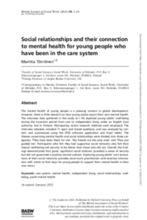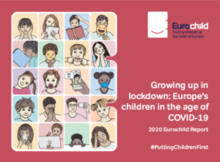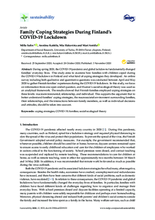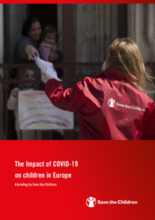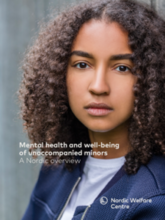Displaying 11 - 20 of 59
The interview data gathered in this study explored young adults’ well-being during the transition period from care to independent living under an English local authority and in Finland.
The overall aim of this article to gain updated knowledge on how children and youth who have received or are receiving child welfare (CW) interventions from the Nordic CWS fare in relation to suicidality.
The present study focuses on experiences of relational tensions and management strategies in family relationships among 18 young adults with foster care backgrounds who participated in interviews.
This webinar was part of Eurochild's breakfast webinars to mark World Children’s Day 2020. Focusing on the economic arguments for investing in children, this webinar also highlighted Finland’s efforts to prioritise children’s rights and why this makes economic sense.
This report reflects on the effects of the coronavirus pandemic on children. It compiles information gathered from 25 countries across Europe, and provides recommendations for improving public policies in the short and long-term to support better outcomes for children and families, including children in alternative care or at risk of separation.
This study aims to examine how families with children coped during the COVID-19 lockdown in Finland and what kind of coping strategies they developed.
This paper is divided into two parts: The first details the evidence from the ground, painting the picture of life for children during the pandemic in different European countries with statistics and examples, and giving a set of recommendations on measures that national governments across Europe can take to help protect children from the worst impacts of the crisis relating to the economic impacts on families, loss of services, access to education and targeted measures for children in migration. The second part focuses on recommendations to the EU institutions on how EU policy and funding can support and complement these national-level actions in these challenging times.
This report surveys different aspects of health of unaccompanied minors who have arrived in the Nordic region.
This book brings together knowledge of how modern countries in Europe and the United States deal with the issue of errors and mistakes in child protection in a cross-national perspective.
This population‐based register‐linkage study assessed the likelihood of OHC placement in different gestational age groups using multivariable Cox regression models.

